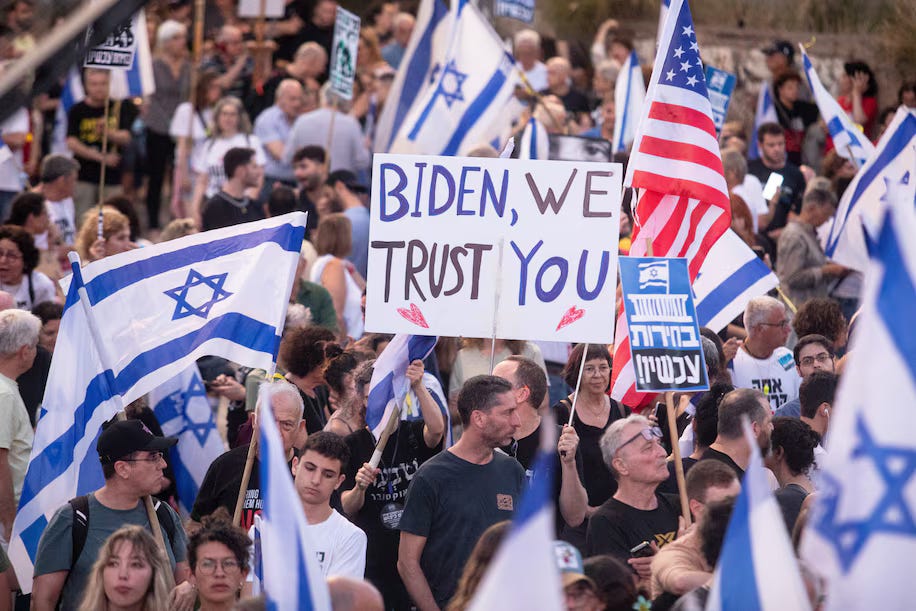
Mounting Pressure on Netanyahu
Political pressure is mounting on Israeli Prime Minister Benjamin Netanyahu as more than 100,000 Israelis flooded the streets of Tel Aviv, demanding he accept a U.S.-brokered deal for a cease-fire in Gaza. Members of his far-right coalition, however, have threatened to bring down the government if he agrees to the proposal.
The Cease-Fire Proposal
The cease-fire proposal, unveiled by President Biden, calls for a six-week pause in fighting, during which hostages taken from Israel by Hamas would be released in phases in exchange for hundreds of Palestinian prisoners. The deal also includes a significant boost in aid shipments to Gaza. The primary sticking point is how and when the war will officially end, with Israel insisting on the complete destruction of Hamas and the release of all hostages.
Reactions from Key Players
Netanyahu’s office has expressed reservations, stating that any deal that does not meet Israel’s conditions is a non-starter. Hamas, on the other hand, has shown a positive inclination towards the proposal but insists on a permanent cease-fire and the complete withdrawal of Israeli forces from Gaza.
Internal Political Struggles
Netanyahu faces competing pressures from moderate members of his war cabinet and families of hostages, who are pushing for a deal, and from his extreme right-wing coalition partners, who demand "absolute victory" in Gaza. The public airing of the cease-fire proposal has exacerbated these tensions, leaving Netanyahu in a precarious position.
Far-Right Threats and Opposition Support
Far-right coalition members like Itamar Ben Gvir and Bezalel Smotrich have threatened to dismantle the government if Netanyahu proceeds with the deal. Opposition leader Yair Lapid has suggested that the government could survive without these far-right elements and has offered to support a cease-fire agreement to ensure the return of hostages and end the ongoing conflict.
Public Demonstrations
In Tel Aviv, over 120,000 people demonstrated, viewing Biden’s announcement as a critical turning point. Hostage families and other protesters have intensified their efforts to pressure the government into accepting the cease-fire proposal, emphasizing the need for a resolution that brings hostages home and ends the war.
International Diplomacy and Humanitarian Concerns
As cease-fire negotiations continue, U.S., Israeli, and Egyptian officials have met in Cairo to discuss the reopening of the Rafah border crossing, a vital entry point for humanitarian aid to Gaza. This agreement also hinges on the proposed six-week pause in fighting.
Looking Ahead: Cautious Optimism
The situation in Israel is fraught with political tensions and high stakes. The U.S.-brokered cease-fire proposal presents a potential pathway to ending the conflict, but it requires delicate balancing of internal and external pressures. While the threats from far-right coalition members loom large, the support from opposition leaders and public pressure provides a glimmer of hope for a resolution. The coming days will be critical in determining whether Netanyahu can navigate these challenges and seize the opportunity for peace.





